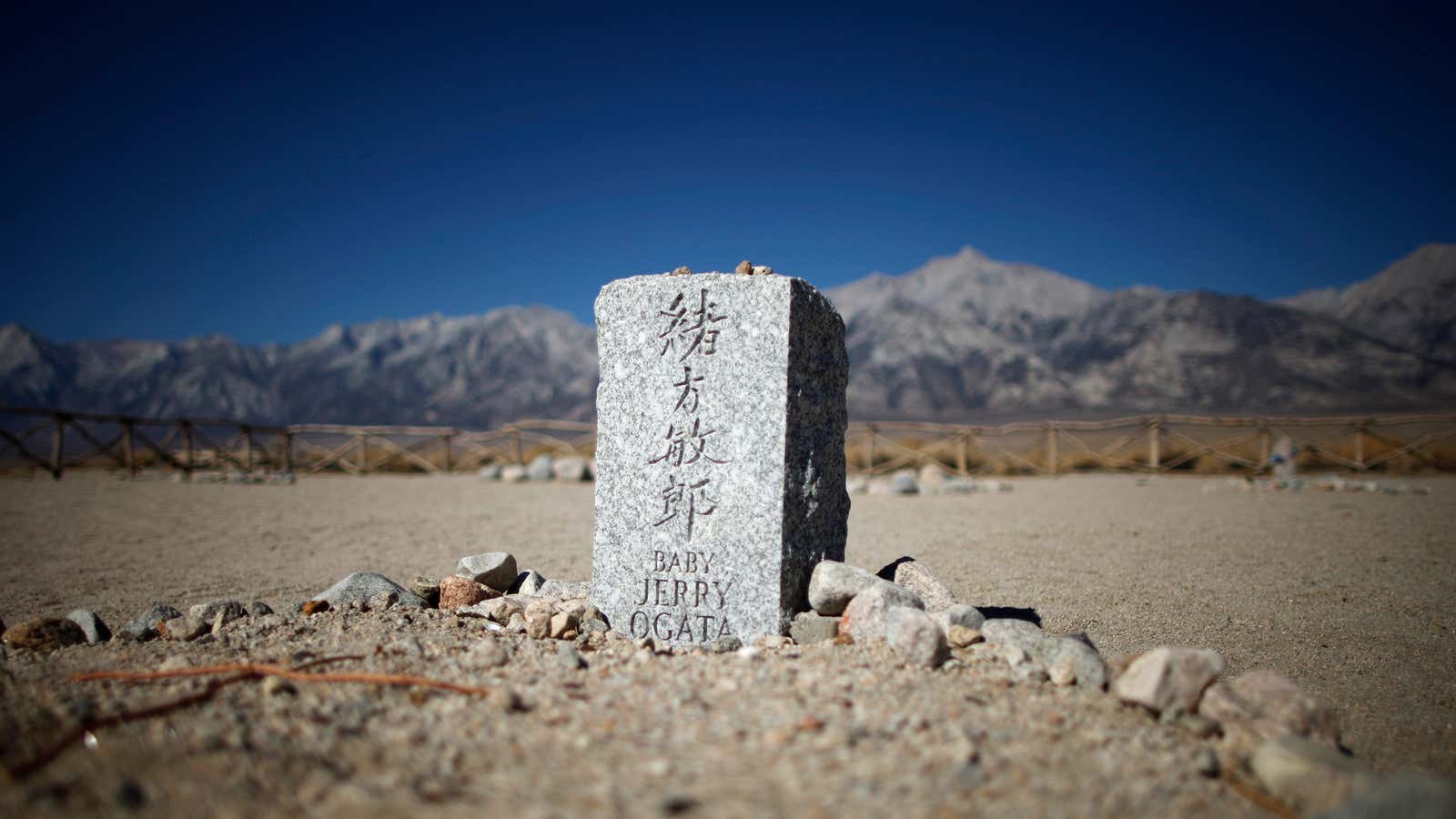History does not stand still. Sometimes, it repeats itself subtly and incrementally. Other times, the patterns are sudden yet plain for the world to see.
This Sunday, Feb 19, is the 75th anniversary of the Day of Remembrance, marking the authorization of Executive Order 9066 in 1942. The order—which set in motion a mass internment of Japanese Americans—was signed and justified in the name of national security. The order wreaked havoc in the Japanese American community, eventually leading to the incarceration of more than 120,000 citizens in our country.
In 1988, after years of determined advocacy by the Japanese American community, the Civil Liberties Act was signed into law by US president Ronald Reagan. It officially recognized this grave wrong that had been committed by our nation. The legislation, which provided redress and a formal apology to the victims of Japanese internment, received support from members of both political parties in Congress. Its enactment was truly a testament to the greatness of our country, and formally demonstrated that we had learned from our imperfect past.
Lately, I’m not so sure if this is true.
When the order was first signed, there was uncertainty. Who, exactly, was impacted by this? Where would they and their families go? What would happen to their businesses? Their homes? Details about the implementation of the order were unclear, and families faced confusion and fear about what would happen to them. With the stroke of a pen, their future was suddenly unknown. People’s lives had changed and they couldn’t even be sure how.
My family was one of them. On my mother’s side, my grandfather was able to arrange the management of his Central Valley farm so that his business was preserved until the US military allowed us to return home. My father, who lived in Los Angeles, had to halt the seed business he was starting in order to report to Poston, Arizona, where both of my parents ended up being interned. The Poston internment camp is where they met and married, and where I was born.
For a long time, my family did not discuss this chapter of our past. When I finally did learn more about their stories, they seemed almost unimaginable to me. I grew up with the same sense of normalcy that most American kids do. To think that my country had questioned the patriotism and loyalty of the generation before me was, and still is, shocking.
On January 27, president Donald Trump signed a sweeping executive order that blocked entry into our nation from refugees and residents of seven Muslim-majority nations. He did so under the blanket promise, without evidence, that it would make our country safer. The carelessness with which the order was carried out, and the vagueness of its contents, caused immediate chaos. Families who were on the brink of creating a better life for their children in America had that future ripped away from them. After its issuance, the order was rightly put on hold by the courts. But in the meantime, real damage has been done.
President Trump and his supporters referenced the unjust internment of Japanese Americans multiple times during the 2016 election as a way to validate proposed policies aimed at the Muslim community. Most Americans, I believe, doubted that these assaults on religious liberty and human rights would actually be considered.
However, as we witnessed 75 years ago, and then again just a few weeks ago, fear-based rhetoric can spiral into devastating injustice. On this Day of Remembrance, we are reminded of the need to treat this day not just as a memorial of the past, but a reminder to stay vigilant in the present.
